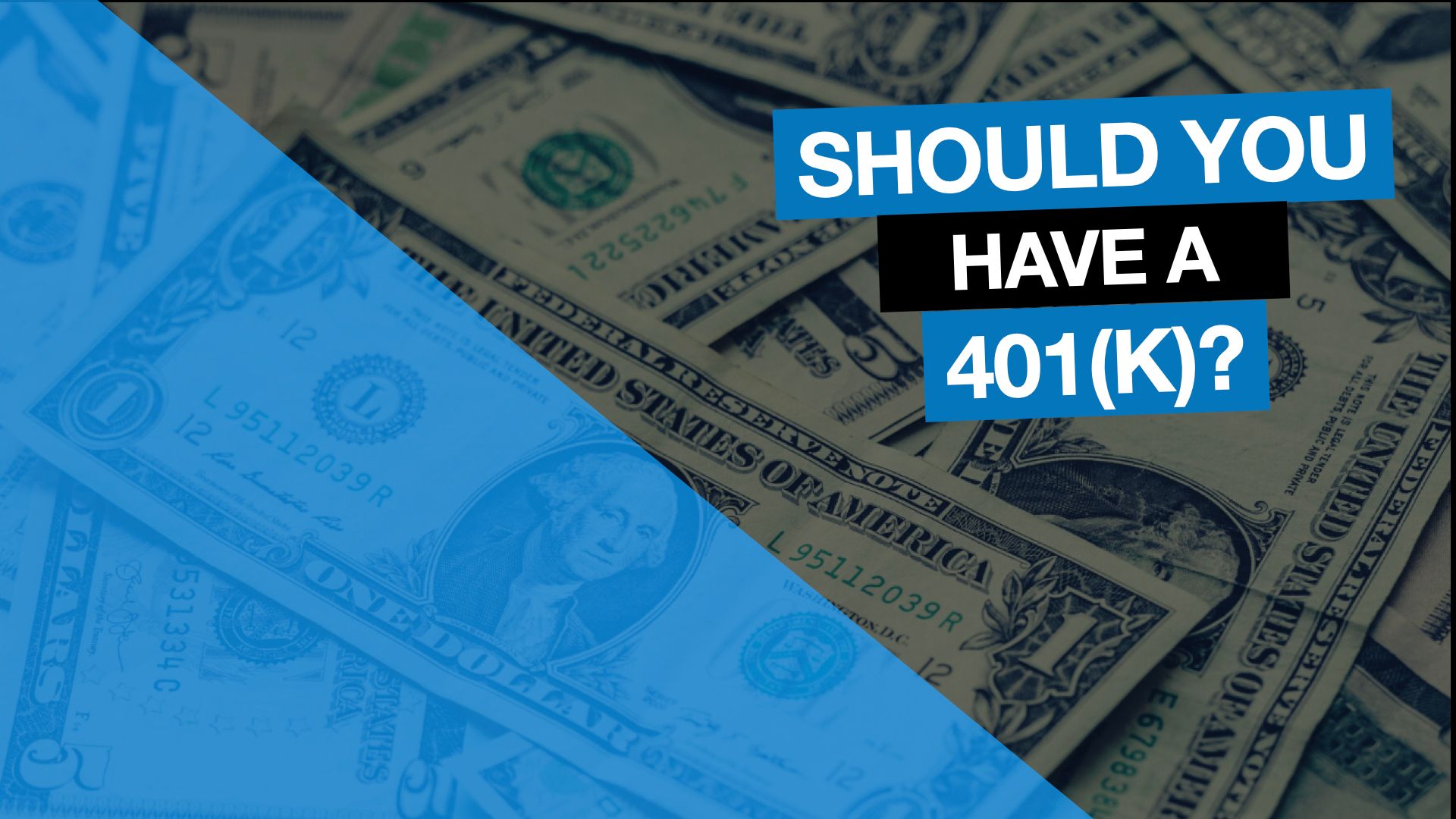Should you Have a 401(k)?

In this post, I'll be discussing the most important investment account, the 401(k); and why you need to have one.
If you read my previous post, I discussed why it's important to have a savings account; however, you will never generate a high enough return to make a real difference if you only put your money into your savings account.
That is why having a 401(k) is the next step you will need in order to generate real growth with your money.
It's no secret that we are terrible at saving money. Historically the average savings rate has hovered between 5-7%, which means that for someone making $40K per year, a 5% savings rate would equal $2,000. If that person were to put that $2,000 into a savings account, one year later that $2,000 would become $2,010. Right now, savings account interest rates are really low, 0.5% is what Ally bank is offering, as of February 2021.
Now if you compared this to putting the $2,000 into the stock market earning 8%, you would have $2,160. Now a $150 difference might not seem like a lot, but that's only after 1 year. If we were to compare the two numbers after 10 years, the results would be more dramatic. 10 years in a savings account would equal $2,102 and 10 years in the stock market would equal $4,318.
So, from this example, you can see that putting your money into the stock market is the best way to generate wealth. The reason is due to compounding interest, which means that you accumulate interest on the interest you made previously.
"Compound interest is the eighth wonder of the world. He who understands it, earns it. He who doesn’t, pays it." - Albert Einstein
The average stock market return over the past 100 years was 11% minus 3% for inflation, which means the average return comes out to be 8%. Now 8% might not seem like a lot, but year over year for 20-30-40 years of 8% growth will accumulate into serious wealth if you actively contribute money.
So, let's dive into some startling facts about 401(k)s. First, only about 1 in 3 people participate in a 401(k) and second, only 1 in 5 of those people contribute enough money to get the full company match. If your company offers a 401(k), you should definitely set it up. Most of the time companies don't automatically enroll their employees into a 401(k) plan. So, if you haven't filled out the paperwork, then there's a chance you don't have one yet. So, check with your HR person to get that started.
A big reason why a 401(k) is great is that employers often have a company match. A common match is typically around 4%. So, let's say if you made $50,000 and you put 4% which would be $2,000 into your 401(k), your company would also add in $2,000. That's free money that you're leaving on the table by not contributing to a 401(k).
Let's revisit the idea of compounding interest. I want to prove a point because often times I hear people say that they are not in a position to be able to invest money. You can absolutely generate wealth by investing only a small amount of money. Check out this table below which shows the result of investing $10, $20, or $50 a week across 1 year, 5 years, and 10 years.

Do you think you could cut out some random spending each month in order to contribute to your 401(k)? Do you think you cut out $50 of spending each week if you knew you could have close to $40K in 10 years?
The number one concern people have is not having enough money for retirement. If you want to be ahead of everyone else, then you need to actively put as much money as you can into your 401(k). The 401(k) maximum contribution in 2021 is $19,500. Very few people come even close to hitting that number. The closer you can come to that $19,500 number each year, the better off you will be when you hit retirement age.
So, I hope I have convinced you how important it is to setup your 401k and contribute money to it. I now want to talk about some common concerns people have about 401(k)s.
The first concern is what happens if I really need my money? Unlike a checking or savings account, your 401(k) is not an account that you can casually withdraw money from. Your 401(k) is a retirement account for long-term investments, so if you withdraw the money before you're 59 1/2 years old, you will incur penalties. There are certain circumstances called hardship withdraws that allow you to pull out the money however it will be subject to income tax and a 10% penalty, therefore it's best if you don't touch that money.
The second concern is about taxes. Will I have to pay taxes when I withdraw my money? Under a traditional 401(k), the money you put in is pre-tax and once you are old enough to withdraw, you will then pay taxes. Under a Roth 401(k), the money you put in is after-tax and once you are old enough, you can withdraw the money tax-free. The difference between a traditional 401(k) and a Roth 401(k) is when you pay taxes. If your company offers the choice between a traditional and a Roth 401(k), I would choose the Roth 401(k).
The third concern is what happens if I switch jobs? Will I lose the money? The short answer is that no you do not lose the money; it is yours to keep. You will be able to transfer it over to your new company's 401(k) or over to an IRA.
*Disclaimer: I am not a financial advisor. The ideas presented in my articles and videos are for entertainment purposes and not to be taken as financial advice.
